Grant Proposal Preparation
Have an idea for a project that may fit within NSF's Advanced Technological Education program? The pointers and resources below may be helpful in turning that idea into a fundable grant proposal.
Upcoming ATE proposal deadlines (due by 5:00pm submitter's local time on the first first Thursday in October, annually):
October 1, 2026
October 7, 2027
October 5, 2028
Recommendations
- Begin by carefully reading the current NSF ATE solicitation and looking over the other information on the NSF’s ATE homepage.
- Explore the Proposal Preparation section of Mentor-Connect’s resource library.
- Review sample forms and proposals on Mentor-Connect's site to guide proposal structure and framing.
- Explore EvaluATE’s checklists and templates early to plan the proposal’s evaluation approach.
- Use the ATE Central map and the ATE Impacts site to find examples of existing projects in appropriate discipline areas for context and inspiration.
Ideation is the creative process of generating, developing, and communicating new ideas. In the context of ATE and ATE grant proposal development, ideation is about coming up with core ideas for an ATE project or center, that both match the needs of your program and institution and align with the aims of the ATE program and NSF. More detailed information about this crucial phase in the proposal preparation process can be found on the Ideation Station page.
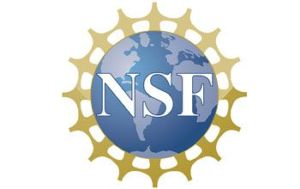 National Science Foundation
National Science Foundation
ATE Program Solicitation
https://www.nsf.gov/funding/opportunities/ate-advanced-technological-education
The ATE program solicitation (AKA "RFP", or Request For Proposals) describes the current ATE grant opportunities and proposal requirements.
NSF Proposal & Award Policies & Procedures Guide
https://www.nsf.gov/policies/pappg/24-1
For anything not covered explicitly in the program solicitation, the Proposal & Award Policies & Procedures Guide (PAPPG) is the authoritative source on what should and should not go into a proposal to NSF and how it should be presented. (If the solicitation and the PAPPG differ, the solicitation should be followed.)
NSF Merit Review Process
https://www.nsf.gov/funding/overview
NSF's merit review process is often referred to as the "gold standard" for vetting research proposals, and any proposal submitted will need to go through that process to be funded. This section from NSF's Awards Management office explains the review process in detail, and can give valuable insights into what happens after a proposal is submitted and some of the factors that affect whether it is funded.
NSF Advanced Technological Education Program
https://www.nsf.gov/funding/opportunities/ate-advanced-technological-education
The home page for ATE on the NSF website includes contact information for the ATE Program Officers, both for the program as a whole and for specific subject areas.
Cross-Cutting ATE Projects
These ATE-funded projects support current and prospective ATE grantees.
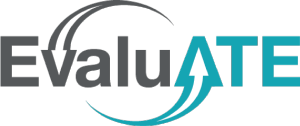 EvaluATE
EvaluATE
https://evalu-ate.org
EvaluATE is the evaluation resource center for the National Science Foundation’s Advanced Technological Education program, providing webinars, resource materials, workshops, and opportunities for ATE community members to engage around issues related to evaluation.
AccessATE
https://accessate.net
AccessATE supports the work of the NSF-funded Advanced Technological Education (ATE) projects and centers in making the materials and activities they develop more accessible for all students and faculty, including those with disabilities. The project aims to increase awareness and understanding of accessibility requirements and provide guidance, tools, and support that offers solutions and helps achieve compliance with accessibility standards.
 ATE Impacts
ATE Impacts
https://ateimpacts.net
The ATE Impacts book and blog are intended to inform educators, college administrators, industry partners, students and parents about ATE's important work preparing technicians for employment in advanced technology fields, as well as improving the skills of educators who teach aspiring and incumbent technicians. Key audiences for the project also include elected officials, community college presidents, business and industry leaders, and ATE principal investigators.
ATE Mentoring Projects
These ATE-funded projects can help prospective grantees navigate the grant proposal creation and submission process.
Mentor-Connect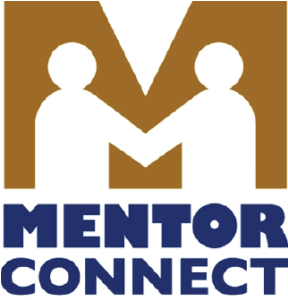
https://mentor-connect.org
Mentor-Connect provides current and relevant information, instruction, feedback, and links to resources that are augmented by peer mentoring to stimulate the engagement of STEM educators with, broaden participation in, and develop a next generation of leadership for ATE for the advancement of technician education to support our nation’s economy. Mentor-Connect effectively supports a cycle of talent development, engaging those with experience as mentors for those who will gain experience and become mentors to others in the future. Of particular note is the Mentor-Connect Resource Library, which offers a wealth of excellent materials for both potential and new ATE grantees.
 MentorLinks
MentorLinks
https://www.aacc.nche.edu/programs/mentorlinks
MentorLinks is designed to help colleges develop or strengthen technician training programs in STEM fields through mentoring, professional development opportunities, and technical assistance; to establish connections for colleges to identify new ideas and relationships through networking opportunities at program meetings and Advanced Technological Education (ATE) National Conferences; and to help colleges gain insight about support for building and sustaining new programs.
Mentor Up
https://atementorup.org 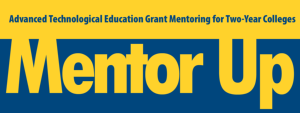
Mentor Up seeks to increase the number and quality of proposals submitted annually to NSF’s ATE program, as well as educate potential grantees on how to most effectively apply for funding. This is achieved through an intensive 2.5-day workshop, accompanied by one-on-one mentoring with experienced Principal Investigators and past NSF Program Officers.
Pathways to Innovation
https://www.pathwaystoinnovation.org
Pathways to Innovation builds on the ATE-supported Business & Industry Leadership Team (BILT) model, a proven method for strategic employer engagement. The project provides a BILT Academy to help participants implement their own BILT, as well as a Mentoring Academy that builds on the BILT framework to help participants create competitive ATE proposals.
Project Vision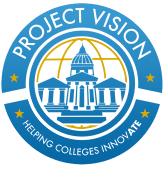
https://projectvis.org
Project Vision is designed to help colleges discover and match innovative ideas with NSF funding opportunities, with a specific focus on ATE. Their mission is to support the development of innovative ideas that produce award-worthy NSF proposals, offer support to college systems, provide professional development, and enable colleges to submit proposals regularly.
Other Resources
 DMPTool
DMPTool
https://dmptool.org
DMPTool is a free, open-source, online application that helps researchers create data management plans. These plans, or DMPs, are now required by many funding agencies as part of the grant proposal submission process. The DMPTool provides a click-through wizard for creating a DMP that complies with funder requirements. It also has direct links to funder websites, help text for answering questions, and resources for best practices surrounding data management.
Mentor-Connect Resource Library
https://library.mentor-connect.org
The Mentor-Connect Resource Library provides a comprehensive collection of resources that can be used to advance technician education and leadership development by supporting potential, current, and former grantees of the NSF ATE program, including grant proposal guides and updates from the NSF, webinars conducted by Mentor-Connect, sample documents and informational articles.

Advancing Research Impact in Society (ARIS)
https://researchinsociety.org
All grant proposals submitted to NSF must address two key elements: the intellectual merit of the proposed project and its potential for broader impacts. ARIS (formerly NABI) is an NSF-funded effort that focuses on understanding and contextualizing the wide-scale impacts of scientific research and education. ARIS was founded in 2014 with co-funding from by the Divisions of Molecular and Cellular Biosciences and Emerging Frontiers in the Directorate for Biological Sciences and by the Division of Chemistry in the Directorate for Mathematics and Physical Sciences at the National Science Foundation.
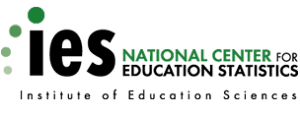 National Center for Education Statistics
National Center for Education Statistics
https://nces.ed.gov/
The National Center for Education Statistics (NCES) is the primary federal entity for collecting and analyzing data related to education in the U.S. and other nations. NCES fulfills a Congressional mandate to collect, collate, analyze, and report complete statistics on the condition of American education; conduct and publish reports; and review and report on education activities internationally.